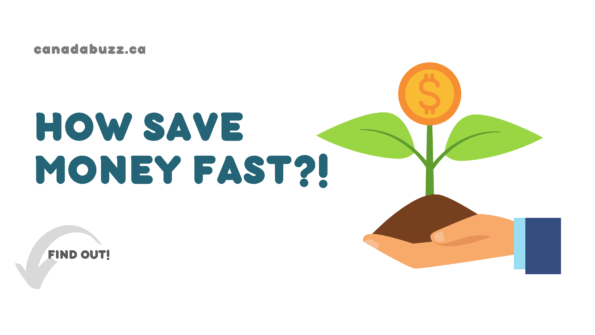If you want to have lasting financial success, you’ll need to start taking control of your finances. People who have a lot of money all have one thing in common – they know how to save.
How to Save Money Fast
Without further ado, here are ten ways to save money fast so that you can become one of those people who have emergency funds and more.
- Learn How to Budget and Track your Expenses
As much as it would be nice to say that we are all born with budgeting intuitions, it’s simply not the case. The ability to budget is not something that we are born with. Rather, it is a skill that we learn through practice. And if you’re looking to save money fast, it’s a skill you need to learn.
Budgeting can help you keep track of every dollar and really open your eyes to where your money is going. It can also help you determine where unnecessary money is being spent and can help you learn how to cut down on spending.
2. Cut down on unnecessary expenses
Once you’ve looked at your budget and started to see where your money is going, now it’s time to start cutting down on costs. Where can you stop spending? Do you buy three coffees a day? Perhaps you can start making coffee at home. Do you eat out a lot? Start making homemade meals.
Are you always the one paying for drinks? Maybe it’s time to let your friends pay. There’s lots of unnecessary money that we all spend, but understanding where that money is going can help us to cut it out so that we can save more.
3. Generate a Grocery List
We’ve all done it before – walked into the grocery store with a plan in mind and out of the grocery store with 20 items more than we need. But those 20 extra items that we didn’t need cost a lot of money.
By generating a grocery list (and using it), it helps us focus on what we actually need and away from the things that we don’t.
4. Sign up for Rewards Programs
Many people in Canada sign up for rewards programs – but a lot of us don’t. This can be for any number of reasons. Perhaps you don’t sign up because it takes extra time, perhaps because you don’t believe the rewards will ever allot to anything, or maybe you have a rewards card but just don’t use it. Start. Rewards DO add up – and they add up quickly.
Take the PC Optimum card, for example. When you use your PC Optimum card, you earn points on every dollar you spend. In some cases, you can earn up to 15 points or more per dollar.
Every 10, 000 points is worth $10 of free groceries. When you shop regularly, these points add up quicker than you might expect. And before you know it, you’ve earned free groceries.
And other rewards programs work the same. Other loyalty programs in Canada include Airmiles, Aeroplan, Esso, Triangle Rewards – the list goes on and on.
5. Enroll for a Round-Up Account
There are lots of different types of bank accounts out there, and one of the more recent ones to be developed is excellent for savings! It’s called a round-up account.
When you make a purchase from your round up account, the amount spent is rounded up to the next dollar and whatever the difference is between the dollar amount and the purchase amount goes into a savings account for you.
For example, if you make a purchase for $34.20, the account rounds your purchase up to $35.00, automatically placing 80 cents in your savings account.
Unfortunately, not all banks offer this option, so you’ll have to shop around to find one that does. In Canada, Scotiabank and WealthSimple were two of the first banks to jump on the trend.
6. Quit a Bad Habit
Bad habits are expensive. According to the National Cancer Institute, the average smoker spends over $2000 a year on cigarettes. Over a 10-year time span, that’s over $22,000. Imagine all of the other things you could spend with this type of money?
And cigarettes aren’t the only bad habits we have here in Canada. Tim Hortons is Canada’s largest restaurant chain, and the average Canadian spends over $150 on coffee alone each year.
The point? If we could just cut out our bad habits, we could save a lot of money.
If you want to save even more, reward yourself financially for each small success. Didn’t smoke that day? Take the money you would have spent on cigarettes and put it into your savings account. You’ll be shocked to see how much you save after even one month!
7. Cancel your subscriptions
Netflix. Amazon. Hulu. How many subscriptions do you have? And how many do you actually use regularly? A lot of Canadians get sucked into subscriptions for one-time use and then forget to cancel.
Well, it’s time to go back and unsubscribe to anything you no longer need or use. Instead of spending $18 a month on the Netflix subscription you never have time to watch, put that money straight into your savings account.
8. Sell things you don’t use
Clothes. Antiques. Dishware. Furniture. Toys. Whatever it is that you have lying around that you don’t use anymore equates to cash. There are lots of ways that you can sell items you no longer need.
Whether you host a yard sale or sell your items online, you can gather money from your sales to put into your savings account (while cleaning up your home at the same time!).
9. Create a day of no spending
Most of us spend money every single day. But if you can stop yourself from doing that – even for just one day, you can save! Set aside a day a week where you vow to yourself that you will not spend one dollar – and stick to it.
If you do well with that, increase it to two or three days. The more days you can go without spending, the more you will save.
10. Live by the 30 Day Rule
Thinking about making a big purchase? A new TV? A kitchen renovation? Before you do, wait for 30 days. If after 30 days you still want it, buy it. With that being said, you’ll often find that what you “wanted” was just an impulse purchase that you didn’t really need. Living by this simple rule can save you a lot of money.
In conclusion, there are many ways to save money, and most of them are really simple. By cutting a few things out of your life or adding a few habits into your life, you can easily change your life and your bank account. Always remember, when it comes to money, a little bit goes a long way over time.
Note: if you are in severe debt and are having trouble getting out of debt, it might be a good idea to speak to a financial advisor. Depending on your level of debt, simple savings plans may not be enough – but there are tools that can help you reach financial freedom. Don’t lose hope if you’re in debt, there are lots of ways to save!







